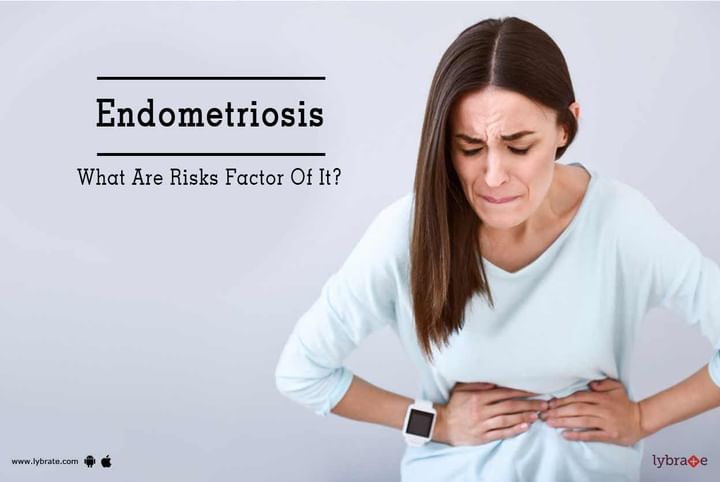Endometriosis - What Are Risks Factor Of It?
Endometriosis is a common gynaecological disorder where the tissue lining the uterus grows outside the uterine cavity. Endometriosis is caused most commonly by menstrual blood flowing back into the fallopian tubes instead of leaving the body. This endometrial tissue may then leak into the abdomen through a surgical scar or cut in the uterine lining, leading to endometriosis.
Here are five things you should know about this condition.
1. It is hard to diagnose: The first roadblock to diagnosing endometriosis is that though it is a very common condition, there is a lack of knowledge about it. The classic symptoms include heavy periods, painful bowel movements and urination, depression, fatigue and pain all over the body. The only way to correctly diagnose endometriosis is through a laparoscopy or keyhole surgery.
2. Endometriosis is not equal to infertility: One of the myths surrounding endometriosis is that it causes infertility. However, this is not true. When treated properly, endometriosis does not affect your fertility, and it is still safe for you to have children. At the same time, you should also know that being pregnant does not cure the condition.
3. It can reduce your sex drive: One of the symptoms of endometriosis is chronic pain all over the body. This coupled with fatigue and depression can reduce your sex drive drastically. Additionally, the act of intercourse itself also becomes painful for women suffering from endometriosis. This pain can be dealt with through pain relievers, or by experimenting with positions to find the one which is most comfortable for you.
Some women have a higher risk of endometriosis:
The exact cause and triggers of endometriosis are still unknown. However, certain factors are said to raise the risk of endometriosis. These are:
1. Early start of mensis <11 yrs
2. Late pregnancy
3. alcohol consumption
4. Genetics: Endometriosis may be passed genetically from generation to generation.
5. Pelvic infections: Scarring of the uterine walls via infections or surgeries can give the menstrual blood that falls back to the fallopian tubes a way out of the uterine cavity, and hence lead to endometriosis.
6. Short Menstrual cycles: Women with menstrual cycles that are shorter than 27 days, or those who have periods that last longer than 7 days are more susceptible to endometriosis than others. However, myths that suggest delayed pregnancy as one of the causes of endometriosis are false.There is no definitive know cure but some therapies have been found to be helpful in treating pain, preventing complications and delaying recurrence of disease.
The treatment for endometriosis addresses it many symptoms as there is no known cure for the disease itself.
1.Medical treatment in form of Hormonal pills.
2.Gonadotropin-releasing hormone (Gn-RH) agonists and antagonists. These drugs block the production of ovarian-stimulating hormones, lowering estrogen levels and preventing menstruation. This causes endometrial tissue to shrink.
3.Progestin therapy. A variety of progestin therapies, including an intrauterine device with levonorgestrel .
4.Aromatase inhibitors. Aromatase inhibitors are a class of medicines that reduce the amount of estrogen in your body. Your doctor may recommend an aromatase inhibitor along with a progestin or combination hormonal contraceptive to treat endometriosis.
5. conservative surgery. If you have endometriosis and are trying to become pregnant, surgery to remove the endometriosis implants while preserving your uterus and ovaries (conservative surgery) may increase your chances of success. If you have severe pain from endometriosis, you may also benefit from surgery. however, endometriosis and pain may return.
6.Hysterectomy with removal of ovaries. Surgery to remove the uterus (hysterectomy) and ovaries (oophorectomy) was once considered the most effective treatment for endometriosis. But endometriosis experts are moving away from this approach, instead focusing on the careful and thorough removal of all endometriosis tissue. Over the counter pain medication may help deal with the muscle aches, while hormonal treatments that slow down the production of estrogen can help with the painful menses. Even a hysterectomy will not cure this disease unless it includes the removal of your ovaries as well. Light exercises such as walking and swimming can also help deal with the discomfort of endometriosis.|sending edited content
The treatment for endometriosis addresses it many symptoms as there is no known cure for the disease itself. Medical treatment in form of Hormonal pills , Injections. Over the counter pain medication may help deal with the muscle aches, while hormonal treatments that slow down the production of estrogen can help with the painful menses.Even a hysterectomy will not cure this disease unless it includes the removal of your ovaries as well. Light exercises such as walking and swimming can also help deal with the discomfort of endometriosis.



+1.svg)
